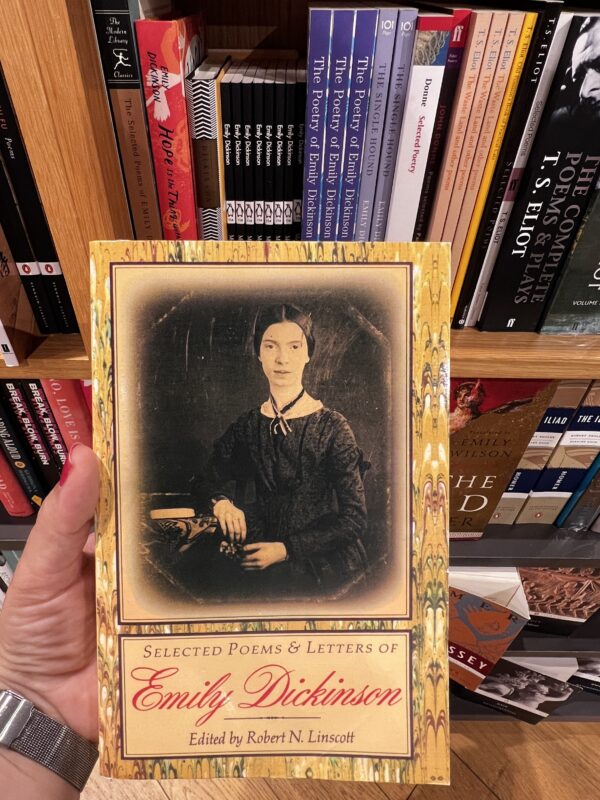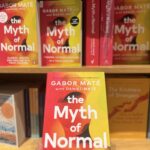
Self-love
“Speaking with you was a refuge for me.”
Emily Dickinson
This “you” can have a special meaning for everyone. For me, however, it manifests in a different person or thing each time. It’s no wonder they say that poets like Emily Dickinson, who is sometimes compared to Rumi, do not belong to any specific era. They are often not understood in their own time by the people of their era and city because the essence of their words is beyond the comprehension of those around them. Their message is not meant for a single place and time but for all times and places, serving as a healing prescription and heartfelt expression for every individual.
Humans thrive on conversation. For me, at different stages of my life, the audience of my conversations has varied. Sometimes it’s “God,” sometimes “the beloved,” and sometimes even “myself”; and this last one is very healing and constructive. As long as I sought the audience outside of myself, speaking with them was only a temporary painkiller for a recurring ache. But when I found myself, everything changed. Speaking no longer acts as a temporary sedative but rather as a part of the irreversible path to inner healing. When the roles of speaker and listener are reversed, and “I” become the listener, supporter, and refuge for my helpless self, I no longer wait for someone from outside to hear, support, help, approve, or pity me. I am all ears for myself, and I embrace myself warmly.
These words may initially seem clichéd, repetitive, and akin to pop psychology, but for anyone on the path, even someone like me at the very beginning, they are tangible. It would be an exaggeration for me to claim that I understand the words of mystics like Husayn Mansur al-Hallaj, but at least today, his words and claims don’t seem strange or bizarre to me. The joy that a person finds in being with themselves, discovered through recognizing the true essence of their existence, is incomparable to any other material or worldly pleasure. Sometimes I contemplate that perhaps Shams Tabrizi also reconciled Rumi with the precious gem hidden within himself, such that in this self-discovery and indifference to others, he embarked on a bewildering journey towards a new life.
And again, a testament from religion, where the Prophet of Islam introduces the path of knowing God through self-awareness, affirms this very concept. The common point among all religions, philosophical schools, and psychological perspectives is centered around self-awareness. As Ervin Yalom writes in “When Nietzsche Wept”: “Is there anything more sacred than self-awareness?”
I have nothing to say when Carl Gustav Jung, in the Zarathustra seminar, has expressed the truth of the matter in the clearest manner possible.
“Loving oneself is the most difficult task; loving another is easier. But loving oneself and accepting one’s existence is like embracing a burning piece of iron that scorches within you and is very painful.
To truly love another person, you must first love yourself. However, if you initially love someone else, that love becomes an escape route we each hope for, finding pleasure in the belief that we are capable of such love. However, in the long run, its consequences catch up with us. You cannot escape from yourself forever. You must return to yourself, to this experience: Are you truly capable of loving yourself?”
خوددوستی
“سخن گفتن با تو برایم پناه بود.”
امیلی دیکنسون
این “تو” برای هرکس میتواند معنای خاصی داشتهباشد. برای من امّا، هربار در فرد یا چیزی متفاوت تجسم مییابد. بیجهت نیست که میگویند شاعرانی چون امیلی دیکنسون که گاهی او را با مولانا قیاس میکنند، متعلق به یک دوره خاص نیستند. آنها غالبن در زمانه خود و از سوی مردمان همعصر و همشهر خود فهم نمیشوند؛ چراکه گوهر سخنشان ورای درک جماعت اطرافشان است. پیامشان نه برای یک مکان و زمان که برای تمام زمانها و مکانها و برای تکتک انسانها نسخه درمانگر و حرفِ دل است.
انسان به گفتگو زنده است. برای من، در هر برهه از زندگی، مخاطب گفگوهایم متغیر بودهاست. گاهی “خدا”، گاه “معشوق”، گاه حتی “خودم”؛ و این آخری بس درمانگر و سازنده است. تا زمانیکه مخاطب را در بیرون از خود جستجو میکردم، سخن گفتن با او تنها مسکنی موقت بر دردی مکرر بود. اما زمانی که خود را یافتم، ورق برگشت. حرفزدن دیگر نه در نقش یک آرامبخش گذرا که به عنوان بخشی از مسیر بیبازگشت شفای درون عمل میکند. آنجاکه جای گوینده و شنونده عوض میشود و “من” میشوم شنونده، حامی و پناه خودِ بیپناهم، دیگر چشم انتظار کسی از بیرون برای شنیدن، حمایت، یاری، تأیید و ترّحم نیستم. خودم سراپا گوشم و خودم را در آغوش گرم خودم میکشم.
این حرفها شاید در وهله اول کلیشهای، تکراری و از قماش روانشناسی زرد بهنظر برسند، اما برای هرکس که در مسیر باشد، ولو چون من در ابتدای آغاز راه، قابل لمس است. ادعای گزافی است که بگویم حرف عرفایی چون حسین منصور حلاج را میفهمم، امّا دستکم امروز برایم سخن و ادعایش غریب و عجیب نیست. حال خوشی که انسان از بودن با خودش که در اثر شناخت گوهر حقیقی وجودش پیدا میکند، قابل مقایسه با هیچ لذّت مادی و دنیوی دیگری نیست. گاهی با خود میاندیشم که شاید شمس تبریزی مولانا را نیز با دُرّ گرانبهای درونش آشتی داد که اینگونه از خودبیخود و بیتوجه به دیگران، سرگشته و حیران به زندگی تازهای پا نهاد.
و باز شاهدی از دین، آنجاکه پیامبر اسلام راه خداشناسی را از خودشناسی معرفی میکند ، مؤید همین مطلب است. نقطه اشتراک تمامی ادیان و مکاتب فلسفی و روانشناسی بر همین مسأله خودشناسی متمرکز است و به قول اروین یالوم در کتاب “وقتی نیچه گریست”: “آیا مقدستر از خودشناسی وجود دارد؟”
چیزی ندارم بگویم وقتی کارل گوستاو یونگ، در سمینار زرتشت نیچه، به آشکارترین شکل حق مطلب را ادا کردهاست:
“دوست داشتن خود دشوارترین وظیفه است، دوست داشتن دیگری آسان است. اما دوست داشتن خود و آنکه هستی همچون در آغوش گرفتنِ آهنِ گداختهی سرخی میماند که در وجودت میسوزد و بسیار دردناک است.
برایاینکه حقیقتن فرد دیگری را دوست داشتهباشی، باید در ابتدا به خود عشق بورزی. اما اگر در وهلهی اول، به دیگری عشق بورزی، این عشق راه فراری است که تکتک ما بدان امید بستهایم و تکتک ما از اینکه توانایی چنین عشق ورزیدنی داریم، لذّت میبریم. اما در درازمدت، عواقبش گریبانگیرمان میشود. شما نمیتوانید تا ابد از خود فرار کنید. باید به سوی خود بازگردید. به سوی این تجربه که آیا واقعن قادرید به خودتان عشق بورزید؟”



